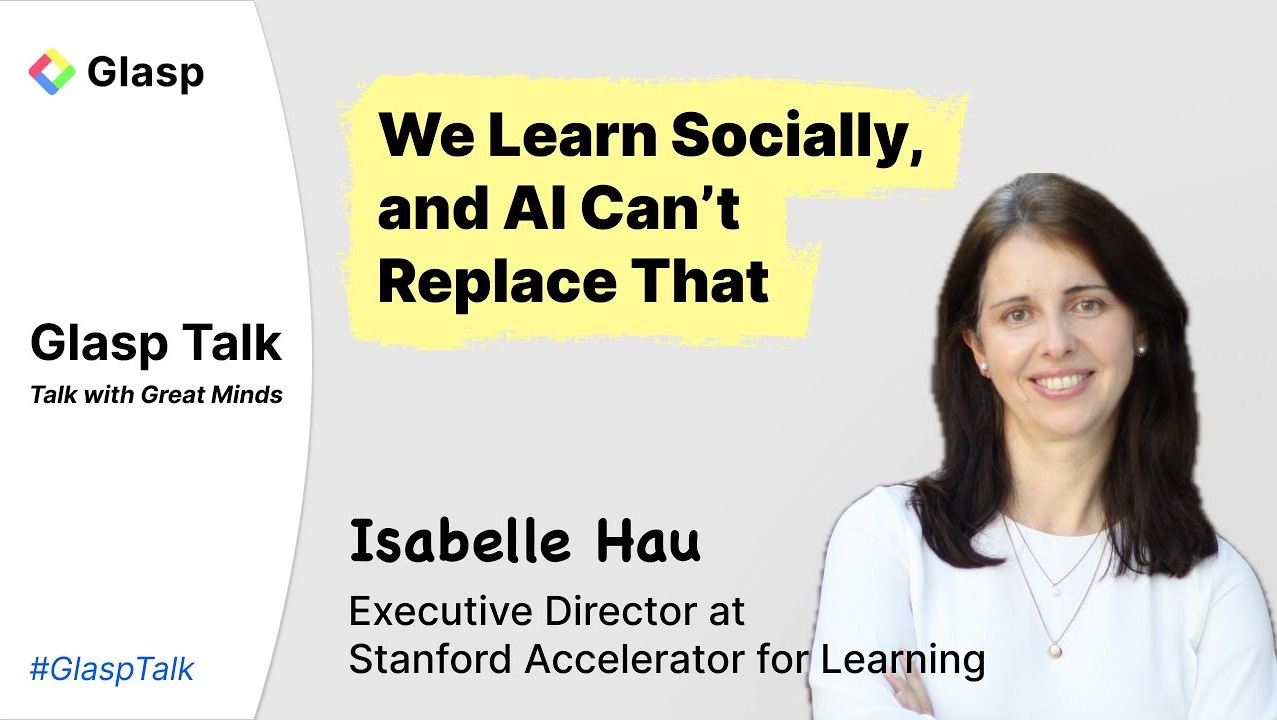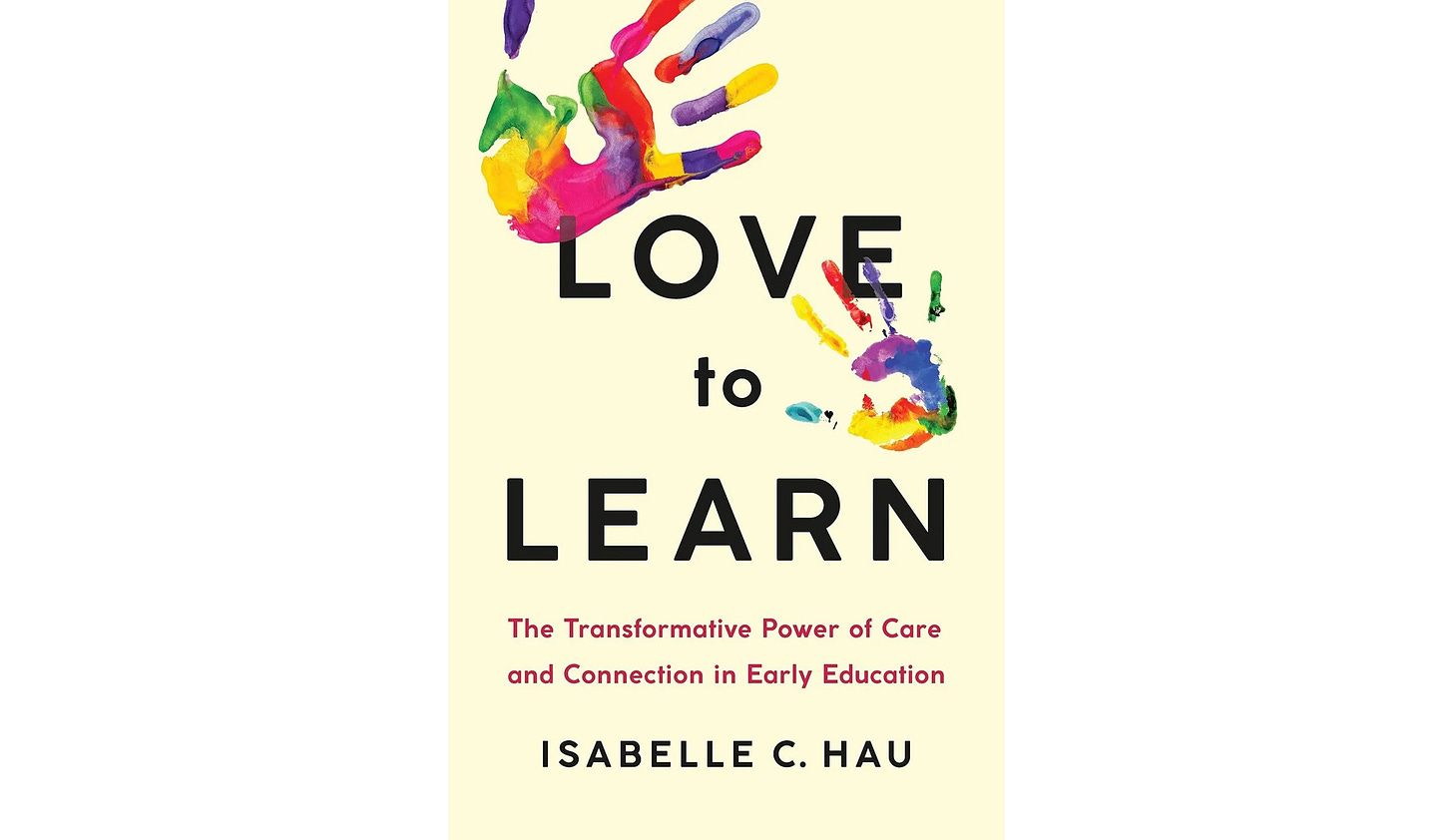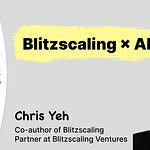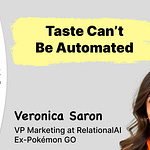This is the fifty-ninth session of Glasp Talk.
Glasp Talk delves into intimate interviews with luminaries from various fields, unraveling their genuine emotions, experiences, and the stories behind them.
Today’s guest is Isabelle Hau, Executive Director of the Stanford Accelerator for Learning and a leading voice in reimagining education for the AI era.
Formerly a venture capitalist at Omidyar Network, Isabelle now advocates for human-centered educational approaches that prioritize enhancing human connections through AI rather than replacing them. She is also the author of "Love to Learn: The Transformative Power of Care and Connection in Early Education," a book that examines how relational intelligence, empathy, and curiosity can revolutionize the learning process.
Watch the full episode on YouTube
Get a quick overview & summary
✨ Want a concise summary before diving in? Install the YouTube Summary with ChatGPT extension by Glasp for instant video summaries!
Book: Love to Learn: The Transformative Power of Care and Connection in Early Education
The most important aspect of early childhood in general and education in particular is the quality and care of the relationships a child forms. Love to Learn shows how to build and develop these relationships -- and unlock every child's true potential.
Early relationships are the key to healthy brain development, resilience, and lifelong flourishing. Children need to be loved, to be valued, to interact, and to be listened to. When children have the space and time to play and explore through nurturing positive relationships, they learn. But loving relationships are precisely what so many children are missing, and modern factors are making it more difficult for children to build these necessary bonds.
Transcripts of YouTube
We, as human beings, have social brains. So we learn socially, especially in the earliest years of life, but I would say throughout life. Hi, everyone. Welcome back to another episode of Glasp Talk. Today, we are honored to have Isabelle Hau with us. Isabelle is executive director of the Stanford Accelerator for Learning, where she leads efforts to accelerate solutions to the most pressing challenges facing learners, from early childhood education to digital and working learners. Previously, she was a partner and a US education lead at…. Read More
Highlights
From Access to Actual Learning:
For decades, systems have been optimized for access (large classes, “sage on the stage”). Hau argues we must optimize for learning by applying learning science across lifelong (early childhood, K–12, adult/workforce) and life-wide (school, home, community, digital) contexts. Stanford’s Accelerator organizes around these pillars to ensure every learner truly learns—prioritizing strong early foundations and human-centered uses of technology that augment, not replace, relationships.Navigating the Future of Education in an AI-Driven World:
Isabelle explores both the promise and the risks of AI in education. While recognizing AI’s potential to personalize learning and boost creativity, she warns of its tendency to displace the deeply human aspects that give learning value. She calls for responsible, research-driven design of AI that supports rather than replaces relationships among teachers, learners, and communities. Her message is clear: AI should help strengthen connections, not diminish them.
Relational Intelligence: The Essential Superpower for the AI Age:
Drawing from her book Love to Learn, Isabelle stresses that relational intelligence, the ability to connect, care, and collaborate, is essential for navigating the future. As children’s social worlds shrink due to screen time, limited play, and smaller families, she highlights a growing empathy gap. Her mission is to rebuild education systems that foster belonging and emotional health, making these the foundation for lifelong learning in a changing world.
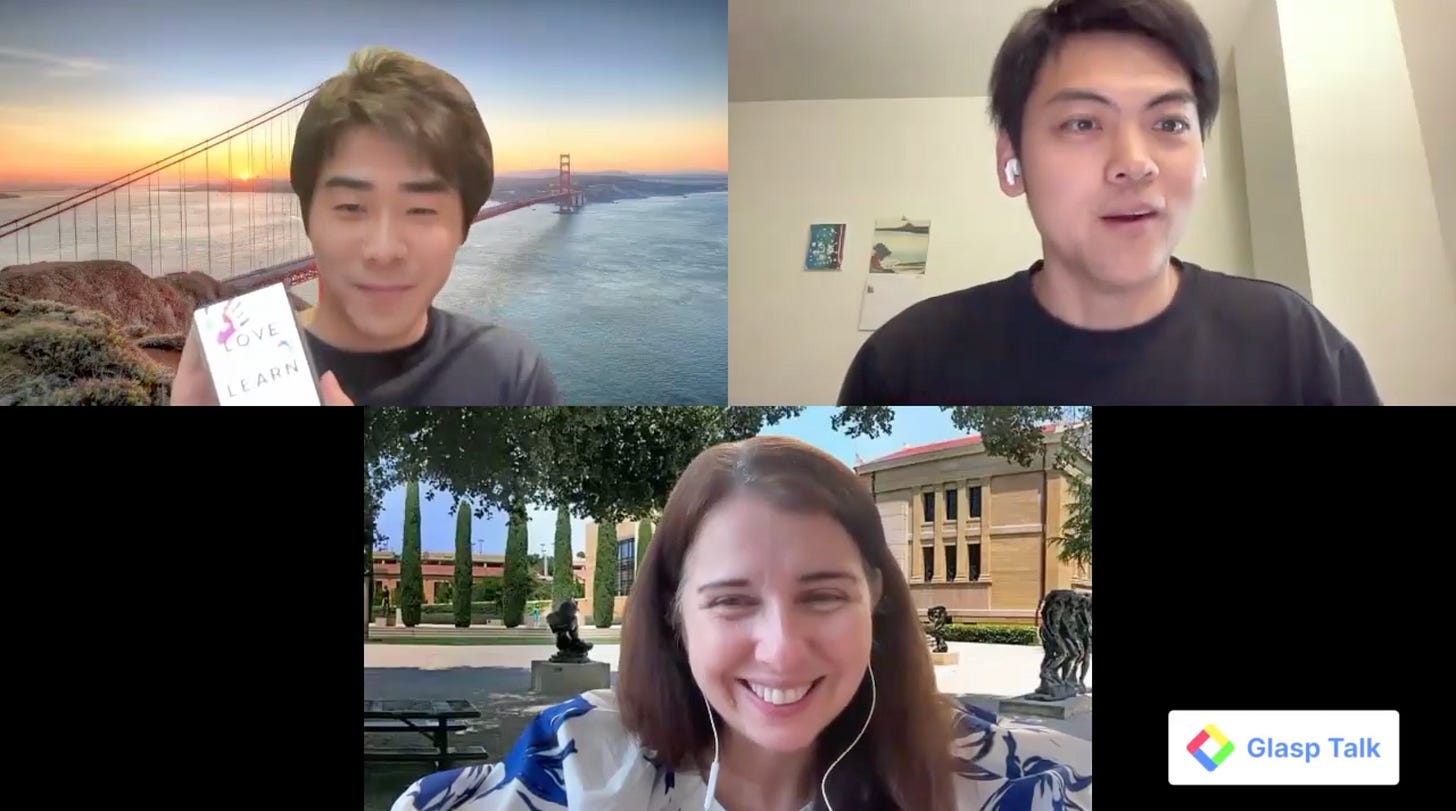
Key questions & insights
Q: What motivated Isabelle Hau to shift from venture capital to education reform?
After years of investing in EdTech, Isabelle realized that technology alone wasn’t addressing the deeper challenges in education. She recognized the need to go beyond access and tools, focusing on systems built on care, connection, and belonging. This inspired her to leave venture capital and work on redesigning education with human development at its core.
Q: How does Isabelle define the purpose of learning in today’s world?
For Isabelle, learning is not just about gaining knowledge or skills. It’s about nurturing human potential, such as curiosity, empathy, and collaboration, across a lifetime. She believes impactful learning grows from strong relationships and that education must be designed to support emotional and social bonds from early years onward.
Q: What role should AI play in the future of education?
While AI can personalize learning and boost creativity, Isabelle stresses it must not replace the human connections that give learning meaning. She calls for AI to be designed with care, backed by research, and used to strengthen relationships among teachers, students, and communities.
Q: Why does Isabelle emphasize relational intelligence in the AI age?
Isabelle sees relational intelligence, the ability to connect, care, and work with others, as the key skill for the future. With children's social worlds shrinking due to screens, less play, and smaller families, she warns of a growing empathy gap. She urges rebuilding systems that center on relational health and connection.
Q: What is Isabelle’s vision for transforming education systems?
Isabelle envisions education built around emotional connection and belonging. She advocates for more research, cross-disciplinary collaboration, and metrics that prioritize student well-being alongside academic growth. By embedding care into system design, she believes we can create resilient and inclusive learning for the future.
Follow Isabelle Hau on social
Small Talks (Substack)
Book: “Love to Learn: The Transformative Power of Care and Connection in Early Education“
Partner with Glasp
We currently offer newsletter sponsorships. If you have a product, event, or service you’d like to share with our community of learning enthusiasts, sponsor an edition of our newsletter to reach engaged readers.
We value your feedback
We’d love to hear your thoughts and invite you to our short survey.




